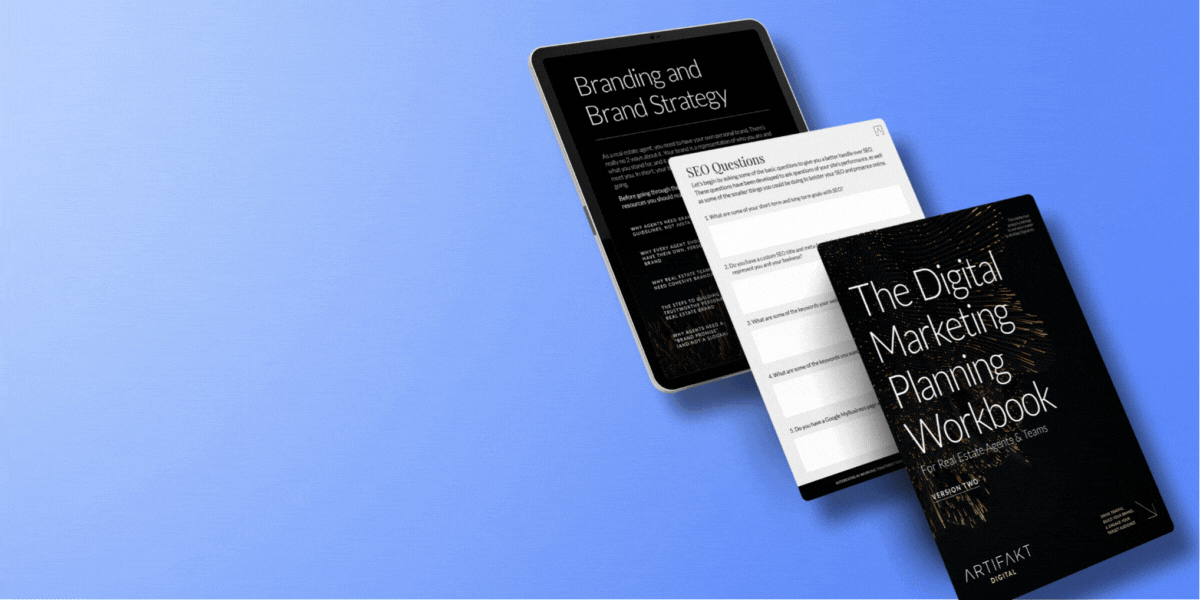As an agent, no matter how someone hears about you, they’re most likely going to research you before they contact you. Nowadays, people research everything before they make a decision.
You wouldn’t book a trip to a resort without looking up other people’s experiences on TripAdvisor; you wouldn’t buy a new computer before reading some reviews on Amazon; you wouldn’t hire a new accountant for your business without checking them out on Linkedin.
Real estate is no different; people are very likely to research you before they reach out to you; and when they are doing their research, it’s your online reputation that makes all the difference.
Your online reputation is how legitimate, how trustworthy, and how professional you seem when someone does a direct search for your name.
Referrals in the Online Age
As I’ve said before, I believe the referral process has changed. 10 years ago, if an agent was referred to someone, that person would also be given their contact information, they’d reach out, and very likely, end up working together.
Now, that’s completely changed. Despite being directly given their contact information, it’s still highly likely that a person is going to research them before they make their hire, which was something difficult to do 10 or more years ago.
Ultimately, that research process is going to start with them typing the agent’s name into a search engine.
And all of that can happen behind the scenes, without your knowledge that you were even referred in the first place. This all means one thing: if your online reputation is poor, then you’re probably losing business that you may not even know about.
Name Recognition & Search Results
When someone searches your name, they need to find a wide variety of results.
This should find:
- Your personal website: this is the first thing you want them to find as you can completely control what they see here and what impression they’ll get of you.
- Your brokerage website: this gives you creditability as an agent that’s part of a professional and established brokerage.
- Your social profiles (Facebook, Instagram, Linkedin, etc): this allows people to get a look at and feel for your personality.
- A lot of online reviews: this helps people understand more about what working with you is like.
- A Google Business page: this helps consolidate all of your information on one page that is guaranteed to display when your name is searched.
Why so many? So you can cover all your bases around how someone researches you.
Everyone’s research process is different, and everyone trusts different websites as part of their personal research process, so you need to give people a lot of options on how to research you.
For example, if someone is really active on Linkedin and it’s the main social platform they use, then that’s likely where they’ll begin their research process.
If people can’t find you, or if they don’t like what they find, then they’re going to work with someone else that they can find and that they do like. Period.
Your Online Reputation Is Everything
What shows up in a search result also contributes to your perceived expertise. This relates back to your personal brand, and what can (or cannot) be found online ties directly back to how users perceive your expertise (and, therefore, your utility to them).
For example, let’s say that you bill yourself “as the neighborhood expert.” Let’s also say that it’s the truth, you know the areas, the market stats, and every single home on every last street.
But, what happens if I can’t find any of that online?
If a good first impression relies on knowing what you do, how you do it, and why it will benefit me (as the user), then not finding that online means you’re not the neighborhood expert. You’re just an option because nothing compels the user to work with you. That’s really all there is to it.
Completing The User’s Vision
In our experience, too many agents, brokerages, and businesses, in general, give the user far too much work to do. They assume that the user can piece all this together, and do all the work for them.
The problem with that is that no two users search the same way, and rarely do they all prize the same amount of information in the same way.
That’s why you need to ensure that when someone Googles your name, a lot of different information that substantiates your brand appears. It needs to cover all the bases, not because a user is going to read through everything, but so that it fits what they prioritize.
Referrals are essentially based on two things:
- Past Success
- Future Success
When a potential client hears your name, they’re covering that first step. They have a friend, family member, coworker who has worked with you before and had a successful time.
Now, you need to handle the second part. Illustrate to your potential client your potential for success together, and that begins by laying out all the good that you do, and why you do it, with a clear, concise, and effective value proposition.
Online Reputation & Digital Strategy
Make no mistake about it: having a good “online reputation” (even one you design yourself) is a key part of your overall digital strategy.
As you build it out and secure how you get found online, now is your key chance to formulate that narrative and speak to key segments of your potential audience.
That way, your online reputation naturally expands in a positive way. It speaks to people the second they search you, and results in more business and more deals.
Want to plan your digital strategy on your own, and set your business up for success? Download our workbook: ‘The Digital Business Planning Workbook’. It’s a self-guided, interactive, strategic workbook where you answer questions about branding, SEO, content, design, and a lot more, so you can set goals for your website and your digital marketing efforts. And, it’s free to download.




